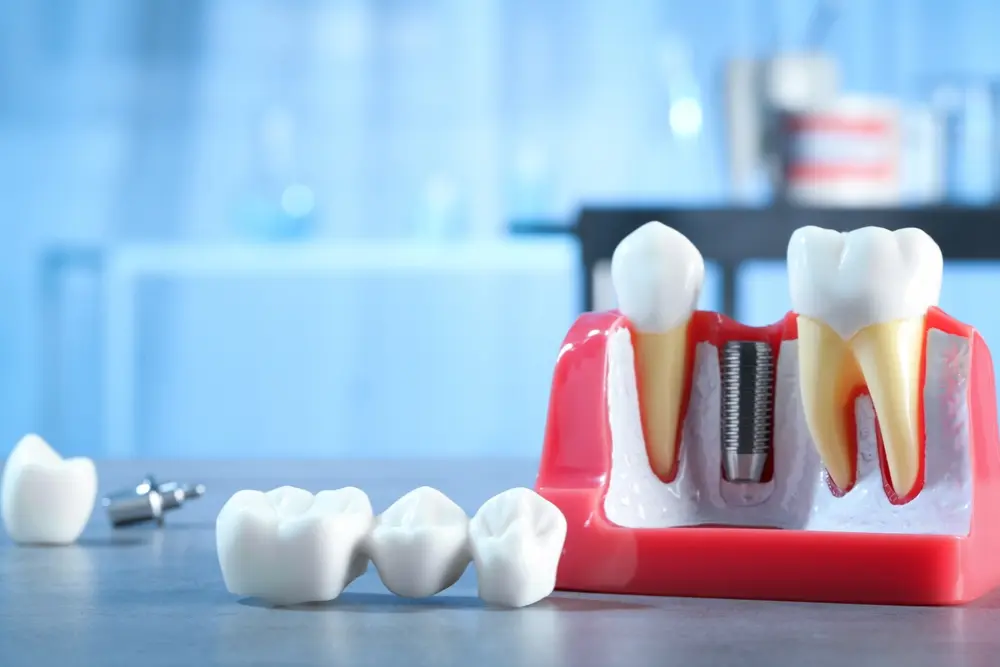
Dental Implants Near Me
Finding the best dental implants near me can be a game-changer for your oral health and confidence. Dental implants offer a reliable, long-lasting solution for missing teeth, enhancing both functionality and aesthetics. This article will guide you through everything you need to, know about dental implants, helping you make informed decisions.
Understanding Dental Implants
What Are Dental Implants?
Dental implants are man-made tooth roots, often crafted from titanium, which serve as a lasting foundation for either fixed or detachable replacement teeth.
Types of Dental Implants
Dental implants come in two primary varieties:
Endosteal Implants: These are the most prevalent type and are placed directly into the jawbone.
Subperiosteal Implants: Positioned beneath the gum but on top of the jawbone, these are ideal for patients who have inadequate bone height.
Dental implants offer numerous benefits, including:
Improved appearance and self-esteem
Enhanced comfort and speech
Easier eating and improved oral health
Durability and convenience
The Dental Implant Procedure
Initial Consultation
The first step is a consultation with your dentist to assess your oral health and determine if you’re a suitable candidate for implants. This might involve taking X-rays and creating 3D images.
Preparation and Planning
Once you’re deemed suitable, a detailed treatment plan is developed. This plan outlines the number of implants needed, the type of implants, and the placement process.
Surgery and Placement
The procedure entails inserting the implant into the jawbone. This is usually done under local anesthesia. After the implant is placed, a healing period of a few months is required for osseointegration, where the implant fuses with the bone.
Recovery and Aftercare
Post-surgery, you’ll need to follow specific aftercare instructions, including maintaining good oral hygiene and attending follow-up appointments to ensure proper healing.
Choosing the Best Dental Implant Provider
Credentials and Experience
Look for a provider with the necessary credentials, such as board certification in implant dentistry, and significant experience in performing implant procedures.
Technology and Techniques Used
Modern technology like 3D imaging and guided implant surgery can enhance the accuracy and success of the procedure. Inquire about the techniques and technologies your provider uses.
Patient Reviews and Testimonials
Reading reviews and testimonials from previous patients can provide insights into the quality of care and results you can expect.
Cost and Insurance Options
Understand the costs involved and check if your provider offers financing options or works with your insurance to cover part of the expenses.
Top Dental Implant Providers Near You
How to Find Local Providers
You can find local dental implant providers through online directories, dental association websites, and healthcare platforms.
Online Directories and Reviews
Websites like dentistnearmyhouse.com offer reviews and ratings for local dentists, helping you make an informed choice.
Recommendations from Friends and Family
Personal recommendations can be invaluable. Ask friends, family, or your regular dentist for referrals to trusted implant specialists.
Questions to Ask Your Dental Implant Provider When consulting with a potential provider, consider asking:
What is the proposed treatment plan?
What are the expected outcomes and timelines?
What are the success rates and potential complications?
How do I maintain my implants post-procedure?
Cost of Dental Implants
Factors Influencing the Cost
The cost of dental implants is influenced by various factors, such as the quantity of implants required, the kind of implant used, the procedure’s complexity, and the location.
Affordable Options and Financing
Many providers offer payment plans or financing options to make implants more affordable. It’s worth exploring these options to manage costs better.
Insurance Coverage for Dental Implants
While many dental insurance plans do not cover implants, some medical insurance plans may cover parts of the procedure if it’s deemed medically necessary.

Benefits of Local Dental Implant Providers
Convenience and Accessibility
Local providers offer the convenience of proximity, making it easier to attend appointments and follow-up visits.
Personalized Care
Local providers can offer more personalized care and build a long-term relationship with you, understanding your unique needs.
Ongoing Support and Maintenance
Choosing a local provider ensures you have easy access to ongoing support and maintenance for your implants, crucial for their longevity.
Common Myths About Dental Implant.
Pain and Discomfort
While some discomfort is expected post-surgery, the procedure itself is typically pain-free due to anesthesia. Pain management strategies can help during recovery.
Success Rates and Longevity
The success rate of dental implants is approximately 95%, making them highly reliable. When properly maintained, they have the potential to last a lifetime.
Suitability for All Ages
Dental implants can be a suitable option for adults of all ages, provided they have adequate bone structure and good oral health.
Real Patient Experiences
Success Stories
Hearing from real patients who have undergone the procedure can be encouraging. Many report significant improvements in their quality of life and confidence.
Challenges Faced
Some patients may face challenges such as longer healing times or minor complications. Grasping these concepts can aid in establishing reasonable anticipations.
Preparing for Your Dental Implant Journey
Oral Health Assessment
Ensure your oral health is in optimal condition before undergoing implant surgery. This might involve treating existing issues like gum disease or tooth decay.
Lifestyle Changes and Preparations
Adopting a healthy lifestyle, such as quitting smoking and maintaining good oral hygiene, can enhance the success of your implants.
Aftercare Tips for Dental Implants
Oral Hygiene Practices
Maintain excellent oral hygiene by brushing twice a day, flossing daily, and using an antibacterial mouthwash.
Dietary Recommendations
Eat soft foods during the initial healing period and avoid hard or sticky foods that can damage the implants.
Regular Check-Ups
Attend regular dental check-ups to monitor the condition of your implants and overall oral health.
Potential Risks and Complications
Common Issues
Some common risks include infection, implant failure, and nerve damage. However, these are rare when the procedure is performed by an experienced professional.
How to Mitigate Risks
Follow your dentist’s instructions carefully, maintain good oral hygiene, and attend all scheduled follow-ups to mitigate risks.
Alternatives to Dental Implants
Bridges and Dentures
Bridges and dentures are common alternatives to implants.
